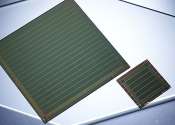Karlsruhe Institute of Technology
The Karlsruhe Institute of Technology (KIT) is the largest research and education institution in Germany, resulting from a merger of the university (Universität Karlsruhe (TH)) and the research center (Forschungszentrum Karlsruhe) of the city of Karlsruhe. The university, also known as Fridericiana, was founded in 1825. In 2009, it merged with the former national nuclear research center founded in 1956 as the Kernforschungszentrum Karlsruhe (KfK). One of nine German Excellence Universities, the KIT is one of the leading universities in science and engineering in Europe, ranking 6th overall in terms of citation impact.
The University of Karlsruhe was founded as Polytechnische Schule, a polytechnical school, on 7 October 1825. It was modeled upon the École polytechnique in Paris. In 1865, Grand Duke Frederick I of Baden (German: Friedrich) raised the school to the status of a Hochschule, an institution of higher education. Since 1902 the university has also been known as the Fridericiana in his honour.
- Address
- Hermann-von-Helmholtz-Platz 1, Karlsruhe, Baden-Württemberg, Germany
- Website
- http://www.kit.edu
- Wikipedia
- http://en.wikipedia.org/wiki/Karlsruhe_Institute_of_Technology
Some content from Wikipedia,
licensed under CC BY-SA









